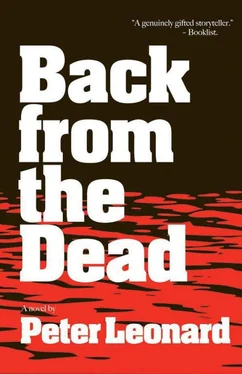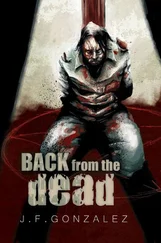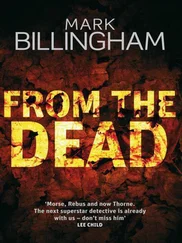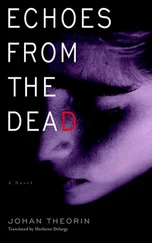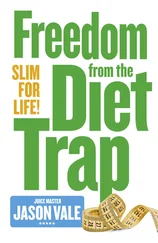“What did you think?” Hess said.
“I was numb, paralyzed. Or maybe hypnotized. The world I knew had been turned upside down.”
“I am sorry for you,” Hess said, with as much sincerity as he could muster. “How many Jews were cremated at Auschwitz?”
“I don’t know, a million, maybe more. I didn’t count them.”
“What did you do with all the ash? You must have had mountains of it.”
“We dumped it around the camp. We loaded it on trucks and dumped it in the Vistula River and also the Sola.”
Hess could see it, the dust of one million Jews, polluting the water table of southwestern Poland. “Did you feel guilty?” he said, rubbing Max’s face in it now.
“Of course I did. It was a moral dilemma. But I wanted to live. I was obsessed with living. For an hour, a day, a week.”
“I understand,” Hess said. “It was all that mattered.”
Max said, “What did you miss the most?”
“My family. And food. My mother was a wonderful cook. And also the Symphony, the Philharmonic,” Hess said, trying to sound like a survivor.
They finished their drinks and Hess invited Max to have dinner with him. He wanted to learn more about this man who bore a striking resemblance to him. In the dining room over plates of sweet and sour chicken, beef chow mein and egg rolls, Max told him he had been a school teacher in Cleveland, Ohio, taught history and accounting for twenty-five years and had retired after his wife died of cancer a year earlier. He had purchased a house in Pompano on the Intracoastal. “I sit outside next to the pool and watch the boats.”
Max had no children. No relatives. No pets. Hess told his new friend he was a scrap-metal dealer from Detroit, down for a week to relax, staying at a motel on North Ocean Boulevard. He was married and divorced and had a seventeen-year-old daughter. When they finished dinner Hess paid the bill and they walked outside and stood in front of the restaurant sign that said Mon Jin Lau in red neon. It was cool and dark, the sky lit up with stars. Not only did he and Max look alike, Hess noticed, they were about the same height and weight.
“Harry, thanks for everything. Why don’t you come by tomorrow afternoon. We’ll have a swim and a drink.” Max wrote his address on a piece of paper and handed it to him. “It’s that way,” he said, pointing west. “Over the bridge and down five streets north, last house, on the Intracoastal, vacant lot next door.”
“I’ll do that,” Hess said, marveling at the situation. Max Hoffman, Sonderkommando, had cheated death once, and now fate had brought Hess back to reclaim him.
Cordell had met the Colombians through a black dude name High-Step, on account of one leg was shorter than the other and he had to wear a special shoe. High was tall, six four on one side and skinny. He had receding hair that reminded Cordell of Cazzie Russell.
They met at a bar in Hialeah, High making the introductions. The Colombians were Alejo, short, maybe five eight, with dark oily hair, and either he needed a shave or was growing a beard. Alejo wore a wrinkled white suit and did the talking for the Colombians. His partner was Jhonny, who Alejo called El Pibe, a name High said later meant kid in Spanish. It made sense ’cause Jhonny had nice olive skin and like six hairs on his face and looked about sixteen. The Colombians sold this sappy, fuck-you-up weed Alejo called woo woo for $100 a pound, the wholesale price. Cordell had heard it called a lot of things, bammy and boom and woolah, but never woo woo.
“How much you want to buy?” Alejo said when the four of them were sitting at a table in the dark bar, the Colombians drinking Cuba Libres, Cordell and High-Step Courvoisier and Coke.
“Let’s start with twenty, see how it goes,” Cordell said, thinking, okay, invest two grand, bring home six, calculating its street value. Maybe make a little more depending how he cut it up. High’d get ten per cent, $200, for introducing them.
“My man buy twenty, going to give him a quantity discount?” High-Step said to Alejo, sounding like a professional marijuana broker.
“I’m sure we can work something out.” Alejo glanced at Cordell and grinned. “Man, you got a lot of ambition, uh?”
“My man get to check it out first,” High said. “Make sure it quality shit.”
“Of course,” Alejo said. “Satisfaction guaranteed or you money back.”
They met at a farm off Military Trail the next day. There was a white two-storey house and a crooked barn looked like it was about to fall over. There were fields but it didn’t look like nothing was growing on them, and there was no one around. Just their two cars parked on the dusty yard in front of the barn. Alejo popped the trunk on his black Road Runner that had a layer of dust on it and handed High-Step a black plastic garbage bag knotted at one end.
“Twenty pounds of Colombia’s finest woo woo,” Alejo said.
High-Step, earning his commission, handed the bag to Cordell. It was heavy, felt like twenty pounds. Cordell untied the knot in the trunk of his Z28, pulled the plastic back, looked in and picked up a handful of sappy weed, smelled like it could send you to a far-off galaxy.
“What you think?” Alejo said. “You like?”
Yeah, he liked. Took twenty $100 bills out of his back pocket and handed the wad to Alejo. Alejo speed-counted it and gave Cordell back $200.
“You discount, man.”
That’s how Cordell’s new enterprise had started. He took the weed back to his apartment in West Palm, filled plastic bags and weighed them on his new scale, got twenty lids per pound, four hundred total. At $15 each that was $6,000. It went fast too, Cordell making the rounds in Fort Lauderdale, the Elbow Room, the Student Prince and Penrods, selling to longhaired, pea-eyed hippies who looked like they were already in orbit, and vacationing students who wanted to get there. Everybody interested in a lid of Grade A, no-bullshit Colombian, smoke it, you’d be under the influence of a higher power.
A second market that looked promising was the crowd at the Windjammer, tap into the young rich professionals. Cordell sat at the bar next to a dude in a starched white dress shirt, unbuttoned to his navel, drinking a Salty Dog. Cordell said, “How you doing? Like to get high?”
“You taking a poll, or selling?” dude wearing a gold Rolex said.
“It’s Colombian,” Cordell said. “Sends you up like NASA.”
“When I smoke grass it’s Acapulco Gold,” the dude said, getting all haughty.
“I’m impressed,” Cordell said. “Shit I got makes Acapulco Gold smoke like oregano, man.”
“How much?”
“Thirty dollars an ounce, limit four ounces per customer,” Cordell said and grinned.
“Why is there a limit?”
“Shit’s so good I can’t be responsible what happens to you.”
“Got it with you?”
Cordell sold the whole batch, four hundred lids in a couple days, and was on the phone to Alejo. “I’m out, man. Got more? I’ll take fifty pounds this time.”
“That’s a lot of woo woo,” Alejo said.
“Got a lot of people want to get high.”
They agreed to meet at the farm again. No High-Step this time, just Cordell and the nickel-plate semiautomatic under the seat, in case he needed back-up. He looked in the rearview, tires on the dirt road kicking up a trail of dust, getting the blue Z28 with white stripes all dirty, just had it washed.
Alejo and Jhonny were waiting in Alejo’s black Road Runner when he pulled up next to the barn. The Colombians got out, Jhonny popped the trunk, reached in and pulled out two garbage bags, brought them over to Cordell. He opened them and checked the shit, smelled just like the last batch. Cordell gave Alejo fifty $100 bills, and that was that.
Читать дальше
